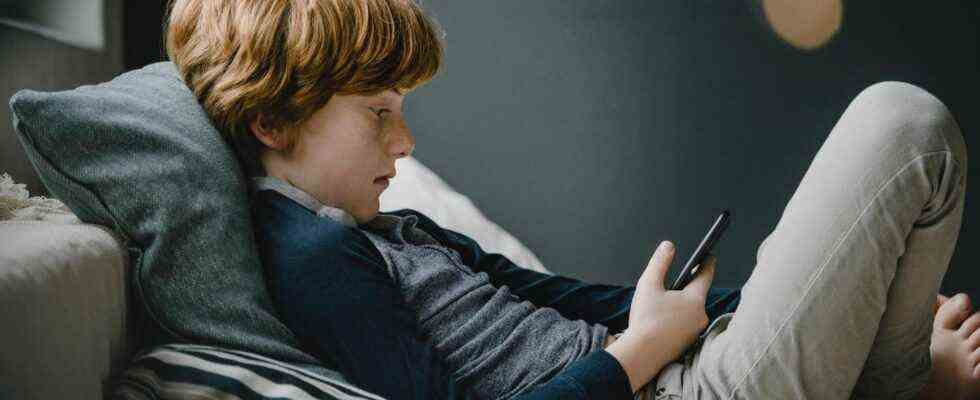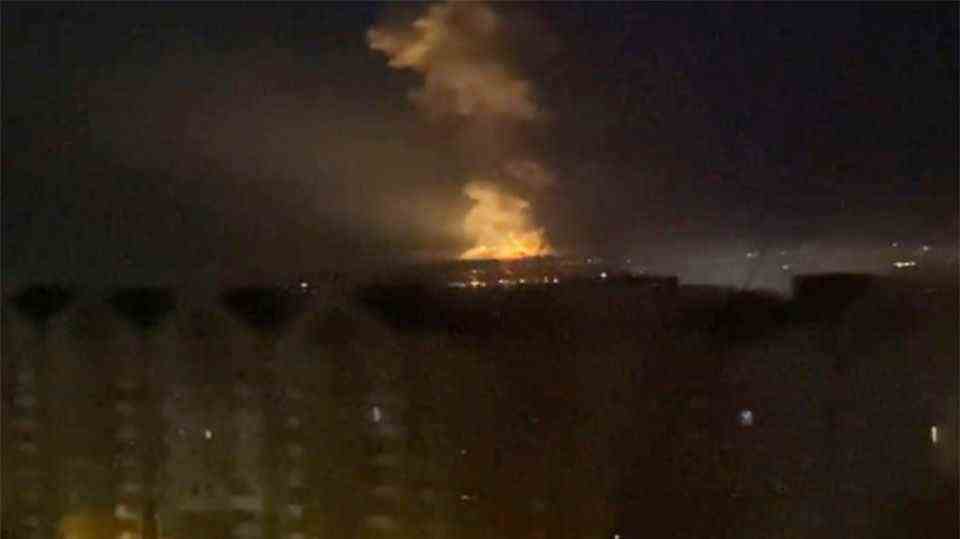therapist explains
How can parents talk to children about the war in Ukraine?
It is important for parents to know their children’s media consumption behavior, says family therapist Felicitas Heyne.
© Westend61 / Imago Images
Family therapist Felicitas Heyne has advice for parents wondering how to talk to their children about the war in Ukraine. This includes: answer honestly and remain factual.
This article first appeared on RTL.de
Russia has started attacking Ukraine. Ukrainian President Volodymyr Zelenskyy has declared a state of war across the country. Children also sense that something is wrong and that something worse could possibly happen. Many parents are currently wondering whether and how they can explain the possible threat to their child. A family therapist can help.
When she was interviewed two years ago on how parents can explain war and terror to their children, the conditions were different, family therapist Felicitas Heyne told RTL. Not much was known about Corona. Today the situation has changed: Because of the past few months and life in and with the pandemic, our children are mentally drained.
This means that the current “fear of war is affecting a very vulnerable generation,” explains Felicitas Heyne. Namely in the midst of a global pandemic that is very stressful for all of us and especially for the children. That’s why she advises parents today, especially with small children, to only talk about a war if they ask specific questions, because “the less I burden my child with it, the better.” You should try to keep your children away from the pictures and information as much as possible. However, one should not lie. If a child is concerned and asks questions, answer honestly and not sugarcoat anything. But without spreading panic or fear. It is important to remain factual.
Parents should question their own behavior
According to Heyne, the most important thing when talking to small children is to calm one’s own feelings and actions and to question oneself: How do I actually deal with the topic myself? A child cannot yet assess the threat of war. But what it can very well assess is the emotional state of its parents. Even if fear or panic are not directly expressed, children orient themselves strongly towards their parents and subliminally sense their concern. That’s why it’s “enormously important to give the child peace and security and to give them the feeling: I’m your rock,” says Heyne.

But overcoming your own panic and calming down in the perceived chaos in the world – how can that succeed? The family therapist advises to better control media consumption and, if necessary, to limit it. To look for one or two reputable news sources and then look at them in the morning and evening at most.
Because if you only hear and watch the bad news from morning to night, you get into a permanent state of excitement, which is also passed on to the children. Another method of staying calm and composed can be to remember past crises that have been successfully overcome and that you and those around you have survived unscathed.
School children and teenagers should be able to talk about what they have read
The situation is somewhat different with older children and teenagers. In everyday family life there are inevitably situations in which one becomes aware of the danger of war: when watching the news together, via social media or surfing the net.
It is important for parents to know the media consumption behavior of their children. You should make sure that the kids aren’t alone on the web too much and don’t leave them alone with the information overload. The older children and teenagers can definitely be approached proactively: What have you read? What’s on your mind? Parents should listen to their children’s concerns and take them seriously. At the same time, it is important for the children to know that their parents are there for them and will protect them in an emergency.


